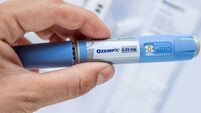More than 4,000 cancer cases not detected due to pandemic

Irish Cancer Society director of advocacy Rachel Morrogh: 'The combined number of missed cancers from 2020 and 2021 tell us that one in 12 expected cancers were not detected over the first two years of the pandemic.'
One in 12 expected cancers were not detected over the first two years of the covid pandemic, new Irish research shows.
New figures also show that 40% of people are not confident that the health service has capacity to treat them in a timely manner.













